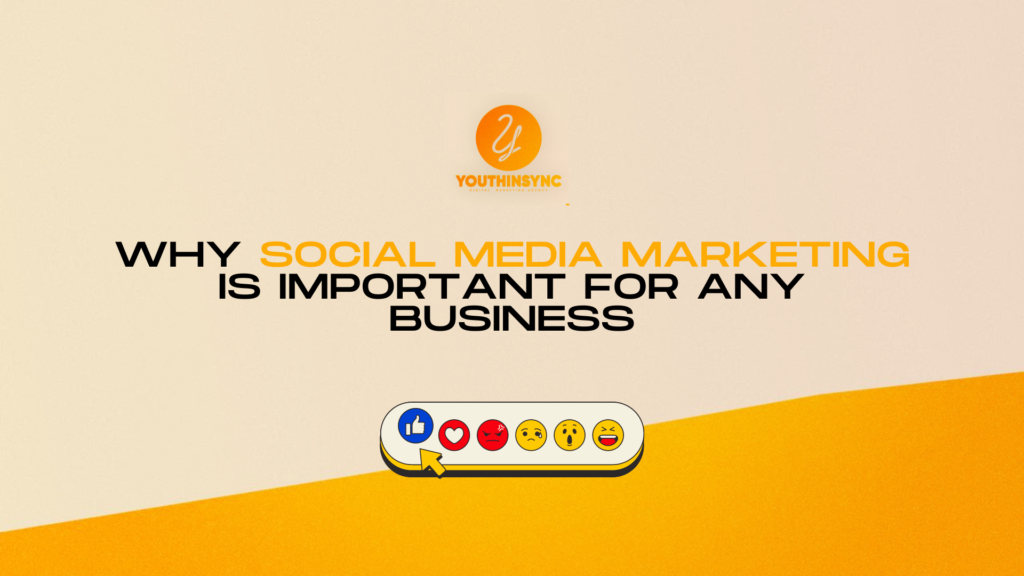Introduction
In today’s fast-paced digital world, social media has evolved from a mere communication tool to an essential component of every successful business strategy. With billions of active users across various platforms, social media marketing has become a powerful way for businesses to reach and engage with their target audience. Whether you’re a small startup or a large corporation, the importance of social media marketing cannot be overstated. This article explores why social media marketing is crucial for businesses of all sizes, highlighting its role in brand awareness, customer engagement, driving website traffic, and much more.
The Evolution of Social Media in Business
Early days of social media
In its infancy, social media was a simple platform for personal interactions and sharing content with friends and family. Businesses were slow to recognize its potential, often treating it as an afterthought in their marketing strategies. However, as platforms like Facebook, Twitter, and LinkedIn grew in popularity, their potential as marketing tools became apparent.
Today’s landscape
Today, social media is an integral part of digital marketing strategies. Platforms such as Instagram, TikTok, and LinkedIn have transformed how businesses connect with their audience. They offer unique opportunities to target specific demographics, engage with customers in real-time, and build brand loyalty. In fact, businesses that fail to leverage social media marketing risk falling behind their competitors in an increasingly digital marketplace.
Building Brand Awareness
Global reach
One of the most significant advantages of social media marketing is its ability to reach a global audience. Unlike traditional marketing methods, social media platforms allow businesses to connect with potential customers across the world. This global reach is particularly beneficial for small businesses looking to expand their market without incurring high advertising costs.
Targeted advertising
Social media platforms offer advanced targeting options that allow businesses to reach the right audience at the right time. Through demographic, geographic, and psychographic targeting, businesses can ensure that their content is seen by those most likely to be interested in their products or services. This level of precision makes social media marketing incredibly effective in driving brand awareness.
Case studies
Consider the success of brands like Airbnb and Nike, which have harnessed the power of social media to expand their reach and engage with customers. Airbnb’s use of Instagram to showcase user-generated content has helped build a global community of travelers, while Nike’s campaigns on platforms like Twitter and YouTube have reinforced its brand identity as a leader in sportswear.
Enhancing Customer Engagement
Direct communication
Social media provides a unique platform for businesses to interact directly with their customers. Unlike traditional forms of communication, such as email or phone, social media allows for real-time interactions that can foster a deeper connection between brands and their audience. For instance, businesses can respond to customer inquiries, address complaints, and engage in conversations that build trust and loyalty.
Customer feedback
Another significant advantage of social media is its ability to serve as a feedback loop. Customers can easily share their opinions, suggestions, and concerns, providing businesses with valuable insights into their needs and preferences. This feedback is crucial for businesses looking to improve their products or services and can lead to higher customer satisfaction.
Community building
Social media is also an excellent tool for community building. By creating and nurturing online communities, businesses can turn customers into brand advocates. These communities foster a sense of belonging and loyalty, which can lead to increased word-of-mouth marketing and long-term customer retention.
Driving Website Traffic and Conversions
Social media as a traffic driver
Social media platforms are powerful tools for driving traffic to your website. By sharing content, promotions, and other valuable information, businesses can encourage their social media followers to visit their website. This increased traffic can lead to higher conversions, as more visitors explore the products or services offered.
Conversion tactics
To maximize conversions, businesses can use social media to promote special offers, discounts, and exclusive deals. Additionally, incorporating strong calls-to-action (CTAs) in social media posts can encourage users to take specific actions, such as signing up for a newsletter or making a purchase. These tactics, combined with targeted advertising, can significantly boost sales and revenue.
Analytics
Measuring the impact of social media on website traffic and conversions is essential for any successful marketing strategy. Tools like Google Analytics and platform-specific insights allow businesses to track key metrics, such as click-through rates (CTR), bounce rates, and conversion rates. By analyzing this data, businesses can refine their social media strategies to achieve better results.
Cost-Effective Marketing
Comparing traditional marketing costs
One of the most appealing aspects of social media marketing is its cost-effectiveness. Compared to traditional marketing methods, such as print ads or television commercials, social media marketing offers a much higher return on investment (ROI). This is especially true for small businesses with limited marketing budgets, as they can achieve significant results without breaking the bank.
Small businesses
Social media marketing levels the playing field for small businesses, allowing them to compete with larger companies. By leveraging organic content, user-generated content, and paid advertising, small businesses can reach a broad audience without the need for expensive marketing campaigns. This accessibility makes social media an essential tool for businesses looking to grow.
Tools and resources
There are numerous tools and resources available to help businesses maximize their social media marketing efforts. From scheduling tools like Hootsuite and Buffer to analytics platforms like Sprout Social, businesses can streamline their processes and optimize their campaigns for better results.
Improving Search Engine Rankings
Social signals and SEO
Social media and search engine optimization (SEO) are closely intertwined. While social media activity doesn’t directly influence search engine rankings, the signals it generates can have an indirect impact. For example, a high volume of social shares can increase the visibility of content, leading to more backlinks and higher rankings on search engine results pages (SERPs).
Content sharing
Social media is a powerful amplifier for content. When businesses share their blog posts, videos, or infographics on social media, they increase the likelihood of that content being seen, shared, and linked to by others. This increased exposure can lead to improved SEO performance, as search engines prioritize content that is widely shared and referenced.
Influencer collaborations
Collaborating with influencers is another effective way to boost SEO through social media. Influencers have large, engaged audiences that can help amplify a brand’s message and drive traffic to its website. Additionally, when influencers share content, it often leads to an increase in backlinks, which are a crucial factor in SEO.
Keeping Up with Competitors
Competitive analysis
In today’s competitive business environment, it’s essential to keep an eye on what your competitors are doing. Social media provides a window into your competitors’ strategies, allowing you to monitor their campaigns, content, and audience engagement. By conducting regular competitive analysis, businesses can identify opportunities to differentiate themselves and stay ahead of the curve.
Staying ahead
Social media is constantly evolving, with new platforms, features, and trends emerging all the time. Businesses that stay up-to-date with these changes can gain a competitive edge by being early adopters of new strategies and technologies. For example, brands that embraced TikTok early on have reaped the benefits of reaching a younger, highly engaged audience.
Case studies
Brands like Wendy’s and Starbucks have demonstrated the importance of staying ahead of social media trends. Wendy’s, known for its witty and sometimes provocative Twitter presence, has successfully engaged a younger audience and built a strong online community. Starbucks, on the other hand, has leveraged Instagram and Pinterest to showcase its products in visually appealing ways, driving both brand loyalty and sales.
Conclusion
Social media marketing is no longer optional for businesses; it’s a necessity. From building brand awareness and engaging with customers to driving website traffic and improving SEO, the benefits of social media marketing are vast and varied. Moreover, its cost-effectiveness makes it an attractive option for businesses of all sizes. By understanding and leveraging the power of social media, businesses can position themselves for success in today’s digital landscape. If you haven’t already invested in social media marketing, now is the time to start.

